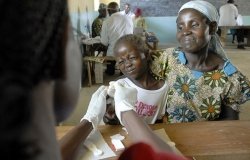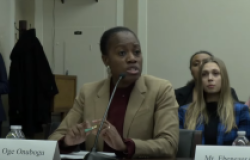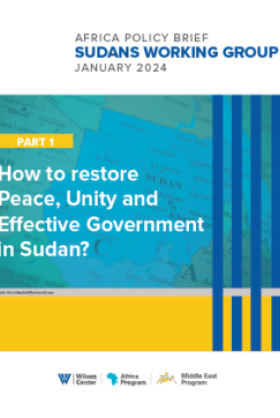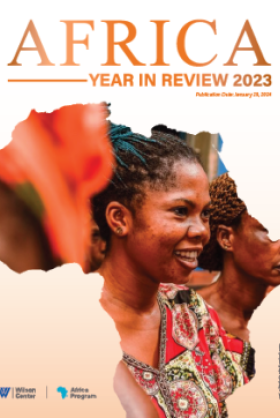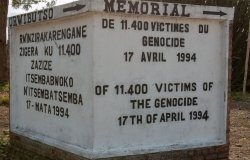Islamist Politics in the Horn of Africa
Kenneth Menkhaus,
Associate Professor of Political Science, Davidson College, NC
In this Africa Project meeting, Kenneth Menkhaus, associate professor of political science, Davidson College reflected on the resurgence of Islamic groups in the Horn of Africa, an area that has gained importance and scrutiny since the events of September 11 and the new war on terrorism.
The major states of the Horn—Eritrea, Ethiopia, Somalia, Djibouti, Sudan, Kenya, and Uganda—confront a variety of Islamic strains that have had consequences on political stability. Islamic groups carrying assorted grievances have taken advantage of weak political structures and authoritarian political systems to evolve new forms of activism and organizations that the world needs to heed.
Somalia, which has witnessed state collapse, has spawned Islamic groups that are building new linkages with radical elements in the Gulf and Middle East. The contemporary focus on Al-Queda needs to be broadened to encompass the Al-Ittihad, a group of Islamic cells with sympathies and links to the radical anti-Western agenda. Al-Ittihad has grown in the past decade on the ashes of the Somalia state and largesse from abroad.
The fundamentalist regime of Sudan once harbored Osama Bin Laden and despite recent rapprochement with the West, Menkhaus contended, the Khartoum government needs to be watched for its continued links to Islamic fundamentalist groups. On U.S. foreign policy options, the speaker cautioned that while it is essential to build partnerships with regional actors to stem the tide of fundamentalism, there is need for great care in choosing friends and enemies. The Somali, a pragmatic people, could be valuable interlocutors in isolating the radical elements that threaten both the resurrection of state structures and breed terrorism. Similarly, engaging Ethiopia in the war on terrorism is a good idea as long as it does not destabilize existing regional power balances. Ultimately, strong and viable states are the antidotes to Islamic radicalism in the Horn and in the whole of Africa.
As U.S. policy toward Africa has increasingly focused on the Islamic elements that threaten global stability, a meeting on the Horn of Africa helped enlighten the policy community on the sources and causes of this phenomenon in Africa. The Horn will remain an important area of U.S. foreign policy as the war on terrorism shifts from Afghanistan to other regional trouble spots. The meeting shed light on future policy options for the U.S.
This was the first meeting in a series that focuses on Islam and Africa, which will be followed by another lecture on Sharia in contemporary Nigeria.
Related Program

Africa Program
The Africa Program works to address the most critical issues facing Africa and US-Africa relations, build mutually beneficial US-Africa relations, and enhance knowledge and understanding about Africa in the United States. The Program achieves its mission through in-depth research and analyses, public discussion, working groups, and briefings that bring together policymakers, practitioners, and subject matter experts to analyze and offer practical options for tackling key challenges in Africa and in US-Africa relations. Read more




